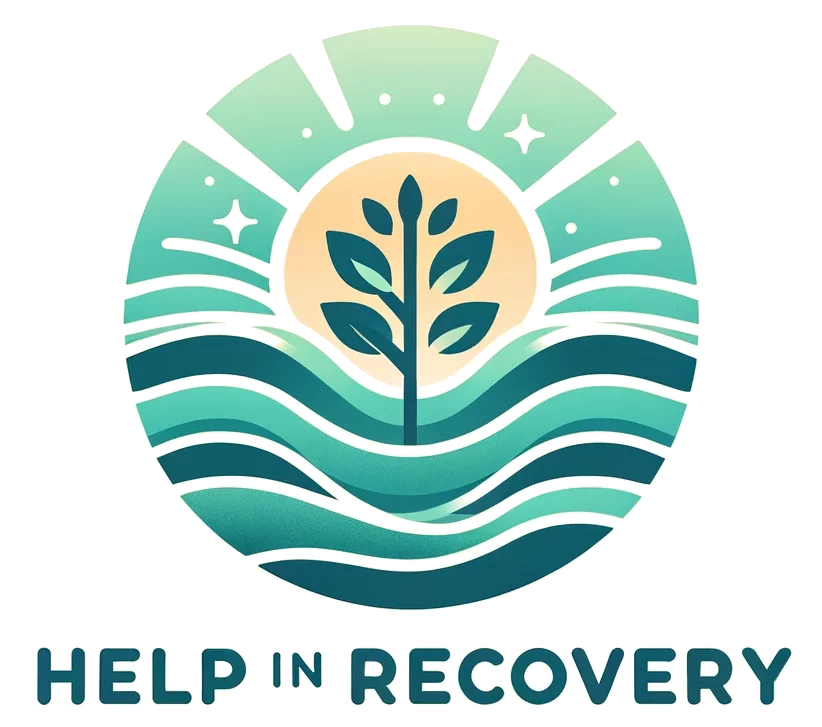Recovery Coach vs Sponsor: Navigating Your Path to Sobriety
Introduction
Recovery Coach vs Sponsor: which should I choose? When dealing with addiction recovery, having support is crucial. However, with various support options available, it can be challenging to determine which is best suited for your needs. This article aims to provide clarity and insight into the roles of Recovery Coaches and Sponsors, two critical figures in addiction recovery support.
Understanding the distinction between a Recovery Coach and a Sponsor is more than just semantics; it’s about finding the proper support that resonates with your journey. A Recovery Coach offers a holistic approach, providing support beyond addiction recovery and delving into various life aspects. On the other hand, a Sponsor, often associated with programs like Alcoholics Anonymous, brings personal experience in overcoming addiction and guides you through the specific steps of the program.
In this article, we aim to provide clarity and insight into the roles of Recovery Coaches and Sponsors. We’ll examine their differences, unique strengths, and how they can each contribute to your journey toward a healthier, sober life. Whether at the beginning of your recovery journey or looking to reinforce your support network, understanding these roles can empower you to make the best choice for your needs.
| Key Takeaways |
|---|
| Recovery coaches offer holistic support beyond addiction recovery. |
| Seek the support that aligns with your recovery goals and resonates with you. |
| Consider your needs, goals, and lifestyle when choosing between a coach and a sponsor. |
| Both roles are essential in the journey to sobriety and can complement each other. |
| Seek the support that aligns with your recovery goals and resonates with you personally. |
What is a Recovery Coach?

Recovery coaches are like guides on your journey to get better from addiction. They know a lot about how to stay away from alcohol and drugs, and they help you make a plan to stay sober. Let’s learn more about what they do and how they can help you.
Their Role and How They Help
- Support and Guidance: A recovery coach gives you support and helps you stay on track. They don’t just focus on addiction; they look at your whole life. They can help you with things like finding a job, making a healthy routine, and fixing relationships that were hurt by addiction.
- Setting Goals: They work with you to make goals for your future. This can include returning to school, getting a new job, or working on personal projects. They help you set these goals and stick to them.
- Overcoming Challenges: Recovery coaches are good at finding things that might make it hard for you to stay sober. They help you figure out ways to deal with these challenges.
- Building Skills: They teach you new skills to help you in everyday life. These skills can be things like how to deal with stress, how to say no to alcohol or drugs, and how to solve problems.
- Encouraging Healthy Habits: They encourage you to live a healthier life. This might mean eating better, exercising, or finding hobbies that make you happy.
- Providing Resources: If you need more help, like talking to a doctor or joining a support group, they can tell you where to find these things.
Why They Are Important
Recovery coaches are essential because they give you personalised help. Everyone’s journey to Recovery is different, so having someone who understands you and what you need can be a big help. They are like a friend who’s always there to listen, give advice, and cheer you on.
- Crisis Support: Sometimes, you might face challenging situations or feel like giving up. Recovery coaches are there for you during these times. They help you stay strong and get back on track.
- Long-Term Support: Unlike other types of help, a recovery coach can be with you for a long time. They can start helping you when you first decide to stop using alcohol or drugs and keep supporting you as you get better and start living a sober life.
Finding a Recovery Coach
If you think a recovery coach could help you, you can find one by looking online or asking at local health centres. Websites like Recovery Coaching International allow you to find more information and connect with coaches.
How They’re Different From Other Helpers
Recovery coaches differ from doctors or therapists because they don’t give medical advice or therapy. They are also different from sponsors in AA because they have special training in helping people with addiction and can help with more than just following the 12 steps.
Success Stories
Many people who have worked with recovery coaches say it made a big difference in their lives. Coaches have helped them stay sober, feel happier, and do better.
In Conclusion
A recovery coach can be a great help on your journey to Recovery. They’re like a guide who knows much about getting better from addiction and can help you with many parts of your life. If you’re considering getting a recovery coach, remember they’re there to support you, help you set and reach goals, and teach you skills to live a better life.
What is a Sponsor?
In the world of Recovery, a sponsor plays a unique and vital role, especially in programs like Alcoholics Anonymous (AA). Let’s dive into what a sponsor is and how they can be crucial to your recovery journey.
Understanding the Role of a Sponsor
- Experience in Recovery: A sponsor has successfully navigated their journey of Recovery, typically within the AA program. They have been sober for a significant amount of time and use their experiences to help others.
- Guidance Through the 12 Steps: The primary role of a sponsor is to help you understand and work through the 12 Steps of AA. They explain each step and show you how to apply them daily.
- Providing Emotional Support: Recovery can be an emotional rollercoaster. A sponsor is there to listen, offer support, and share the wisdom they gained from overcoming similar challenges.
- Accountability Partner: Sponsors regularly check in to see how you’re doing and discuss any challenges you face. This accountability is crucial in maintaining your commitment to sobriety.
- Crisis Availability: Sponsors are often available for phone calls or meetings, especially during crisis or temptation. They provide immediate support when you’re struggling, although they’re not a substitute for professional medical or psychological care.
- Experience-Based Advice: One of the standout aspects of having a sponsor is their ability to offer advice based on real-life experiences. They’ve faced many of your challenges and can provide practical tips and strategies to overcome them.
- Emotional Connection: The relationship with a sponsor often becomes intensely personal. They offer guidance and become a confidant to whom you can express concerns and fears that you might not feel comfortable sharing in more extensive group settings.
- Long-Term Relationship: The journey with a sponsor can last for years, providing a stable and consistent source of support. This enduring relationship can be a cornerstone of your Recovery, offering guidance and reassurance as you navigate the ups and downs of sober living.
How They’re Different From Recovery Coaches
While both sponsors and recovery coaches offer valuable support, a sponsor’s role is more focused on guiding you through the 12 Steps and providing peer support based on personal experience in Recovery. In contrast, a recovery coach often has formal training and offers a broader range of services, including life coaching and skill development.
Why a Sponsor is Important
Having a sponsor means you’re not alone in your recovery journey. They are a mentor who understands what you’re going through and can offer practical, experience-based advice. This kind of peer support can be incredibly reassuring and motivating.
Finding a Sponsor
You can find a sponsor at your meetings if you’re part of a 12-step program like AA. Look for someone with the kind of sobriety and life balance you aspire to achieve.
Success Stories
Many people in recovery credit their sponsor with playing a crucial role in their ability to stay sober. The personal connection and shared experiences often make the guidance of a sponsor incredibly impactful.
The Impact of Sponsorship
The impact of a sponsor in the recovery process can be profound. Many individuals attribute their success in staying sober to the guidance and support they received from their sponsor, highlighting the decisive role that this personal connection plays in the recovery journey.
In Conclusion
A sponsor is more than just a guide; they’re a mentor, a confidant, and a role model. Their personal experience in overcoming addiction and their commitment to helping others do the same makes them an invaluable ally in your journey to Recovery. Whether you’re working through the 12 Steps or need someone who understands what you’re going through, a sponsor can offer the support, understanding, and encouragement you need to succeed.
Comparing Recovery Coaches and Sponsors

When deciding between a recovery coach and a sponsor, it’s essential to understand how they differ and what each can offer on your recovery journey. Here’s a comparison to help you make an informed decision.
Differences in Training and Approach
- Training: Recovery coaches often have formal training and certifications in addiction recovery. They may also be healthcare professionals. Sponsors, on the other hand, are typically volunteers with personal experience in Recovery but need formal training.
- Approach to Support: Recovery coaches provide a more comprehensive and flexible support form. They often incorporate life coaching, skill development, and crisis management. Sponsors primarily guide you through the 12 Steps of Alcoholics Anonymous, offering emotional support and practical advice based on their own experiences.
Scenarios Where Each Might Be More Beneficial
- For Comprehensive Life Guidance: Choose a recovery coach if you need help with broader aspects of your life, like career, relationships, and personal goals, alongside addiction recovery.
- For 12-Step Program Guidance: A sponsor is ideal if you are committed to a 12-step program and value shared experiences and emotional support from someone who has personally overcome addiction.
The Complementary Nature of Both Roles
It’s important to note that recovery coaches and sponsors can complement each other. While a recovery coach offers a broad range of support, a sponsor provides a deep understanding of the 12-step program and personal experience in overcoming addiction.
Making the Right Choice
Consider your needs, goals, and the type of support system that resonates with you. Some may benefit from the structured guidance of a sponsor. In contrast, others might find the comprehensive support of a recovery coach more aligned with their recovery journey.
Conclusion
Both recovery coaches and sponsors play valuable roles in the journey to sobriety. Understanding their differences and unique strengths can help you choose the proper support for your needs and goals in Recovery.
Advantages of Working with a Recovery Coach
Choosing a recovery coach for your journey to sobriety comes with several benefits. Here’s a closer look at why someone might opt for a recovery coach and the advantages they offer.
Personalised Support and Flexibility
- Tailored Recovery Plan: Recovery coaches work with you to develop a recovery plan specific to your needs, goals, and challenges. This personalised approach can be efficient.
- Flexible Scheduling: Many recovery coaches offer flexible meeting times, including evenings and weekends. They can adapt to your schedule, which is helpful for busy professionals or those with demanding lifestyles.
Focus on Overall Well-being and Life Goals
- Holistic Approach: Recovery coaches look at all aspects of your life, not just addiction. They help you improve physical health, emotional well-being, career and personal relationships.
- Long-Term Wellness: They focus on your long-term wellness, helping you make changes that aid in Recovery and enhance your overall quality of life.
Professional and Confidential Relationship
- Confidentiality: Recovery coaches are bound by professional codes of ethics. You can trust them to keep your conversations private, encouraging open and honest communication.
- Professional Guidance: Unlike peers or family members, a professional coach offers unbiased, expert guidance. This can be invaluable in navigating the complexities of Recovery.

Conclusion
A recovery coach can offer personalised, flexible support that takes time to find elsewhere. They consider all aspects of your life, providing comprehensive guidance beyond addiction recovery alone. A recovery coach might be the right choice if you’re looking for a holistic approach to sobriety.
The Role of a Sponsor in Recovery
Understanding the role of a sponsor in the recovery process is crucial for those considering a 12-step program. Let’s explore how a sponsor can support your journey towards sobriety.
Emotional Support and Accountability
- Guidance Through Personal Experience: Sponsors use their recovery experiences to guide you. Their first-hand knowledge of the struggles and triumphs provides a relatable and empathetic perspective.
- Regular Check-ins: Sponsors typically keep in regular contact, providing a level of accountability that can significantly aid in maintaining sobriety.
Navigating the 12 Steps
- Step-by-Step Guidance: A significant part of a sponsor’s role is to help you understand and work through the 12 Steps of Alcoholics Anonymous or similar programs. This guidance is crucial for integrating these principles into your daily life.
- Applying the Steps Practically: Sponsors assist in translating the 12 Steps into practical actions and decisions, helping you to apply these principles in real-world scenarios.
Peer Support Based on Shared Experiences
- Shared Recovery Journey: The sponsor-sponsee relationship is built on shared experiences in Recovery, creating a unique bond and understanding.
- Relapse Prevention: Sponsors can be particularly helpful in identifying potential relapse triggers and developing strategies to avoid them.
Finding the Right Sponsor
To find a sponsor, participate in 12-step program meetings. Look for someone whose approach to Recovery resonates with you and who demonstrates the kind of sober life you aspire to lead. More information about finding a sponsor can be found on the Alcoholics Anonymous website.
Conclusion
A sponsor plays a pivotal role in the 12-step recovery process, offering emotional support, accountability, and practical guidance based on their journey to sobriety. Their peer support and shared experience provide a unique and valuable perspective on Recovery.
Making the Right Choice for Your Recovery Journey
| Feature | Recovery Coach | Sponsor |
|---|---|---|
| Training | Formal training and certifications in addiction recovery | Personal experience in recovery, typically without formal training |
| Approach | Comprehensive support including life coaching, skill development | Guidance primarily through the 12 Steps of AA |
| Support Type | Professional and holistic life guidance | Peer support based on shared experiences |
| Focus Areas | Overall well-being, including career, relationships, and personal goals | Focused mainly on sobriety and recovery through the 12 Steps |
| Availability | Flexible, can be arranged as needed | Depends on the individual; often readily available for support |
| Long-term Role | Can provide long-term, ongoing support | Often a long-term mentor and guide |
Deciding between a recovery coach and a sponsor is a personal choice. It depends on your individual needs and recovery goals. Here are some factors to consider to help you make the best decision for your path to sobriety.
Factors to Consider
- Your Recovery Needs: Reflect on what you need most in your Recovery. Do you need comprehensive, all-around life guidance, or are you looking for someone who has personally experienced Recovery through a 12-step program?
- Your Lifestyle: Consider your daily schedule and commitments. A recovery coach might be more suitable if you need flexible support that fits into a busy lifestyle.
- Your Goals: Think about your long-term goals. Are they mainly focused on sobriety, or do they include other areas of your life like career, relationships, and personal development? A recovery coach might be better suited for holistic life improvement.
Importance of Personal Needs and Recovery Goals
- Aligning Support with Goals: Ensure that the support you choose aligns with your recovery goals. Each option offers different benefits, so understanding your goal is critical.
- Personal Connection: The effectiveness of a recovery coach and a sponsor can depend on your connection with them. Consider meeting with potential coaches or sponsors to see who you resonate with most.
How to Find the Right Support
- Research: Look up information online about recovery coaches and sponsors. Websites like SAMHSA (Substance Abuse and Mental Health Services Administration) offer resources and information on finding support.
- Ask for Recommendations: If you’re part of a recovery community or know others who have gone through similar journeys, ask for their recommendations.
Conclusion
Choosing between a recovery coach and a sponsor is crucial in your recovery journey. By considering your individual needs, lifestyle, and goals, you can select the support that will best help you on your path to sobriety.
Conclusion: Choosing the Right Companion in Your Recovery Journey
In the diverse landscape of addiction recovery, the decision between a Recovery Coach and a Sponsor is not just about choosing a support system; it’s about choosing a companion for one of your life’s most challenging yet rewarding journeys. Recovery Coaches and Sponsors offer unique and invaluable support, but they do so differently.
Recovery Coach: A Recovery Coach provides a broad, holistic approach to Recovery. They cater to various life aspects beyond addiction, offering personalised support, flexible scheduling, and professional guidance. This comprehensive approach is ideal for those seeking a tailored recovery plan encompassing all areas of their lives.
Sponsor: A Sponsor, on the other hand, is deeply rooted in the 12-step program framework. They offer a blend of emotional support and accountability, drawing from their personal experiences in Recovery. Their guidance is particularly beneficial for individuals seeking a mentor who has successfully navigated the path of sobriety through a structured program.
The Power of Support in Recovery
Embarking on the road to Recovery is a brave step, and the support system you choose can be a beacon of hope and guidance. Whether it’s a Recovery Coach’s broad perspective or a Sponsor’s focused approach, both play a pivotal role in the journey towards sobriety.
Taking the Next Step
As you continue on your path to Recovery, remember that seeking help is a sign of strength and courage. We encourage you to explore these options further and choose the support that aligns best with your recovery goals and personal needs. Your journey to a life of sobriety and wellness is within reach, and with the proper support, you can navigate the challenges and celebrate the victories that lie ahead.
If you’re seeking more information or ready to take the next step, explore our resources, connect with professionals, and become a part of a community that supports and uplifts you in your journey.

Frequently Asked Questions (FAQs)
Below are some common questions and answers related to Recovery Coaches and Sponsors to help you further understand their roles in addiction recovery.
What is the main difference between a Recovery Coach vs Sponsor?
A Recovery Coach is typically a trained professional offering a broad range of support, including life coaching and skill development. A Sponsor, usually part of a 12-step program like AA, offers peer support based on personal recovery experience.
How do I find a suitable Recovery Coach?
You can find a Recovery Coach through professional networks, recovery centres, or online platforms dedicated to addiction recovery services.
What should I look for in a Sponsor?
Look for a sponsor who has sustained sobriety, has a good understanding of the 12-step program, and is someone you feel comfortable talking to and can trust.
Can I have both a Recovery Coach and a Sponsor?
Yes, many people find it beneficial to have both as they offer different support and perspectives on the recovery journey.
Are online Recovery Coaches as effective as in-person coaches?
Yes, online Recovery Coaches can be just as effective. The key is finding a coach who understands your needs and with whom you can build a strong working relationship.







